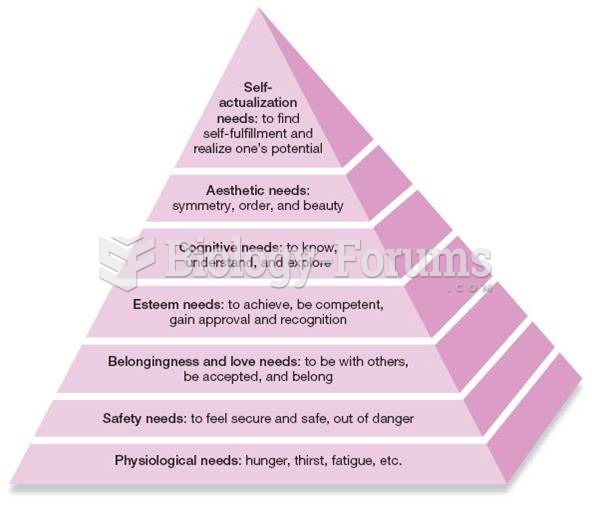|
|
|
The most dangerous mercury compound, dimethyl mercury, is so toxic that even a few microliters spilled on the skin can cause death. Mercury has been shown to accumulate in higher amounts in the following types of fish than other types: swordfish, shark, mackerel, tilefish, crab, and tuna.
Most fungi that pathogenically affect humans live in soil. If a person is not healthy, has an open wound, or is immunocompromised, a fungal infection can be very aggressive.
Blood is approximately twice as thick as water because of the cells and other components found in it.
Thyroid conditions cause a higher risk of fibromyalgia and chronic fatigue syndrome.
More than 30% of American adults, and about 12% of children utilize health care approaches that were developed outside of conventional medicine.






